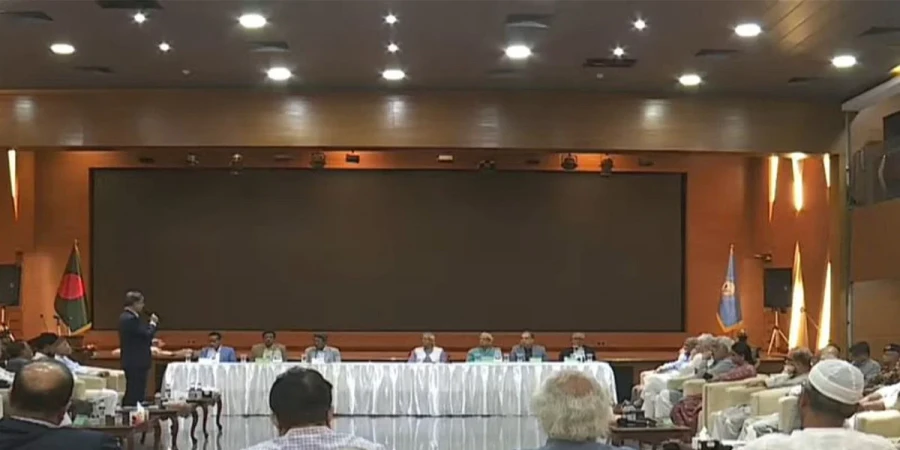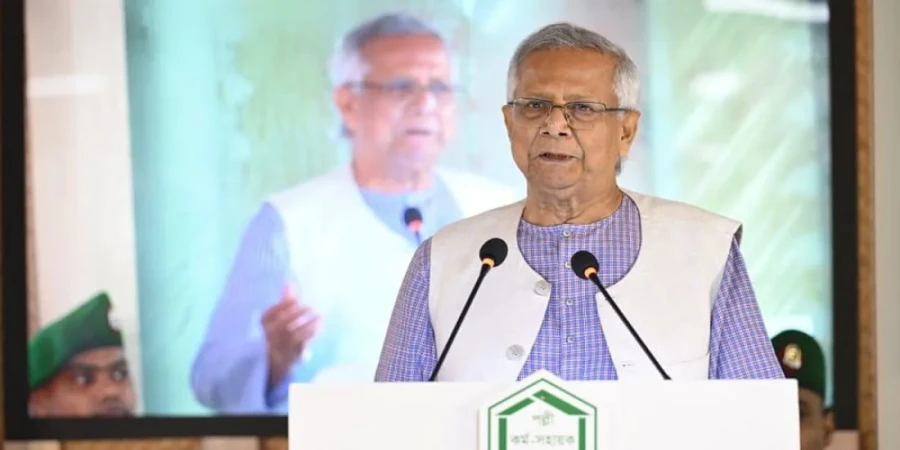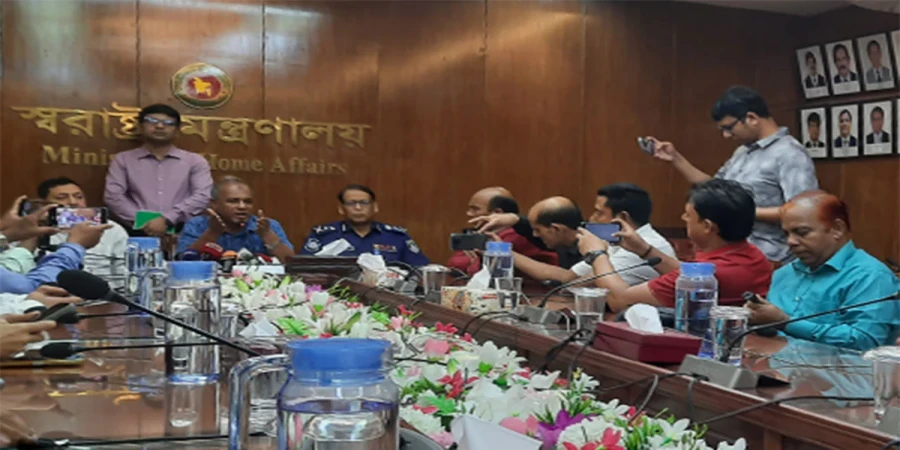
ছবি: -Collected Photo
The National Consensus Commission has initiated discussions with major political parties regarding the legal basis and implementation process of the July Charter. The meetings, aimed at building broader agreement on the charter, commenced on Sunday afternoon at the Foreign Service Academy in the capital.
The session was chaired by the Chief Adviser Dr. Muhammad Yunus, who emphasized the importance of dialogue and cooperation among all political stakeholders. Representatives from key parties, including the BNP, National Citizens’ Party (NCP), and Jamaat-e-Islami, attended the meeting, reflecting the commission’s efforts to ensure an inclusive approach to national consensus.
While the political parties have reached broad agreement on the July Charter itself, the commission has yet to finalize a clear roadmap for its implementation. Various proposals have been under discussion, including holding a national referendum, issuing special constitutional orders, introducing ordinances, or executing executive directives. These measures were suggested by the commission led by Dr. Ali Riaz in prior consultations aimed at translating the charter into actionable policy.
The latest round of talks builds on a prior meeting held on September 11, where the commission explored ways to bridge gaps between political interests and establish a functional mechanism for implementing the charter. The discussions are intended to clarify procedural details and ensure that the charter’s objectives are upheld effectively while maintaining political stability and transparency.
Dr. Yunus highlighted that successful implementation of the July Charter requires both political consensus and legal clarity. He stressed that without a clear procedural framework, even agreements in principle could falter during execution, potentially creating uncertainty in governance.
Participants at the meeting acknowledged the significance of collaborative decision-making, emphasizing that an inclusive approach would strengthen public confidence in the charter’s legitimacy. Several political leaders pointed out the need to reconcile differing party perspectives while maintaining the core principles of the July Charter.
The commission’s initiative represents a critical step in consolidating political alignment ahead of national policy implementation. By engaging parties in structured dialogue, the commission aims to reduce political friction and ensure that the charter’s legal and procedural mechanisms are practical, transparent, and enforceable.
Observers note that the July Charter, which outlines key governance reforms, has been a subject of discussion among political circles for several months. Ensuring its smooth execution requires not only political buy-in but also careful design of legal instruments that can withstand scrutiny and maintain continuity in administration.
With ongoing consultations, the commission hopes to produce a detailed implementation plan that balances political interests with the broader goal of national governance reform. The engagement of diverse political voices underscores the commission’s commitment to participatory decision-making and reflects an effort to build consensus in a highly polarized political environment.
The National Consensus Commission plans to continue its discussions over the coming weeks, bringing together additional stakeholders to finalize the charter’s implementation process. By providing a platform for dialogue, the commission seeks to ensure that the July Charter is translated into actionable policies that enjoy broad-based political support and public legitimacy.
repoter





